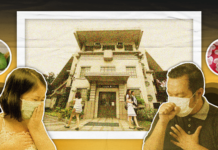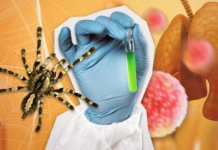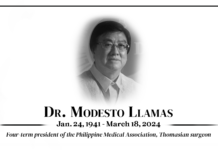MASS TESTING and contact tracing are the government’s “weakest links” in its response to managing the Covid-19 pandemic in the country, said former Covid-19 National Task Force adviser Dr. Anthony Leachon.
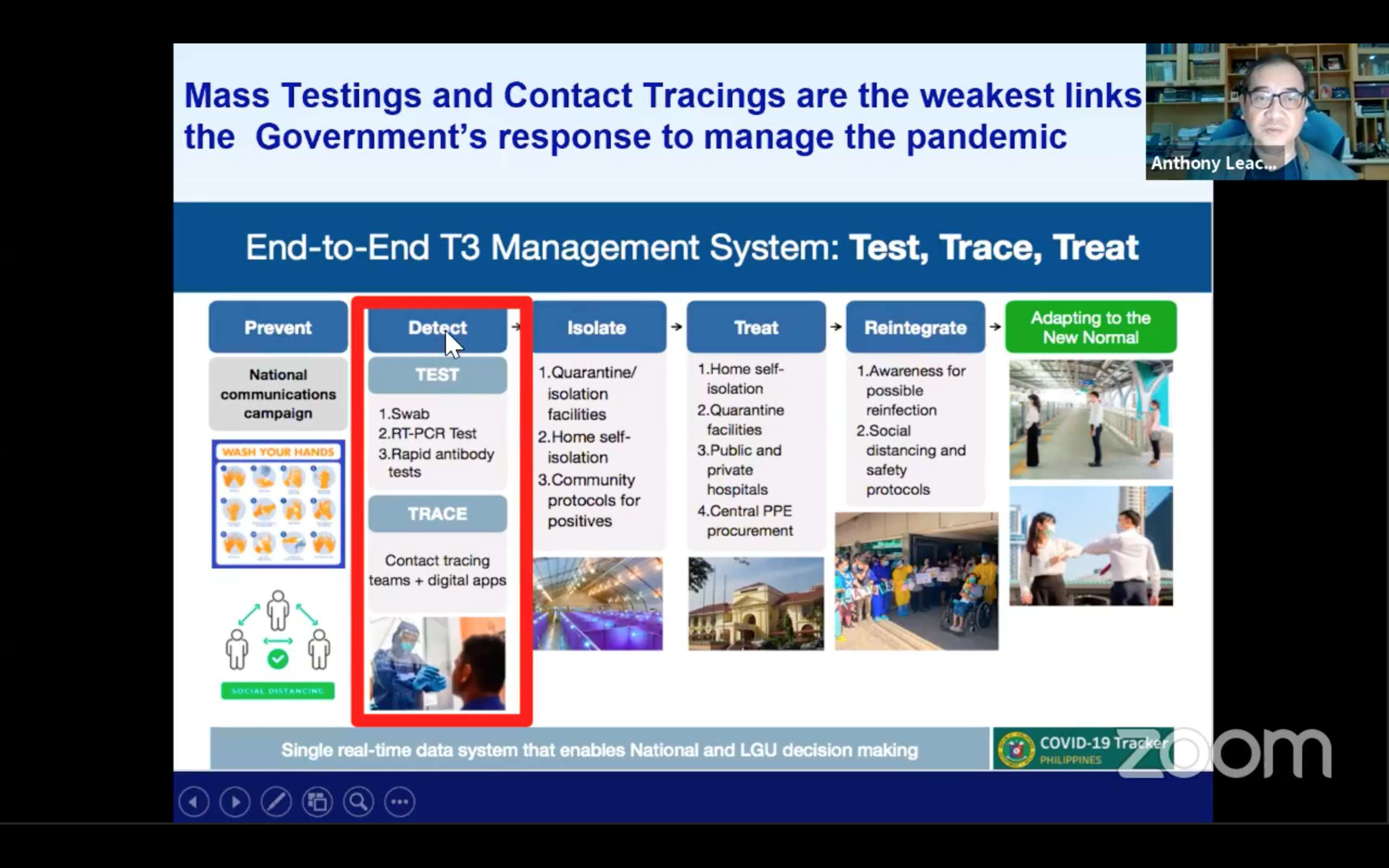
“We have a plan, but our weakest link is on the testing and of course, on the contract tracing. Virtually, we don’t have an app for contact tracing and we need to ramp up our testing,” Leachon said during the second Albertus Magnus Faith and Science Lecture on Oct. 8.
Leachon, a cardiologist and UST Medicine alumnus, said that testing, along with increased vaccination efforts, essentially the country’s way out of the pandemic.
“To end the pandemic, you need to concentrate on the vaccination efforts, and to curb the cases you need to do more testing,” he said.
On testing, Leachon said that the country needed to maximize its diagnostic tools, particularly the rapid antigen test since some areas in the country did not have molecular labs to conduct reverse transcription-polymerase chain reaction (RT-PCR) tests.
“We propose the rapid antigen test because of the rapid turnaround time, so that we can isolate those patients who are actually positive, and those negative can go back to work,” he said.
The Department of Health earlier said that it would “gradually” include positive results of antigen tests in its daily Covid-19 tally, retracting from its initial decision to not include them due to their accuracy and usage.
Leachon was also not in favor of the country’s “vicious cycle” of imposing strict lockdowns during infection surges and then reopening the economy once cases go down.
“I think the best is not to do lockdown, but enhance our healthcare capacity, testing, contact tracing, isolation, and then zero in on the vaccination,” he said.
“We need to shift our strategy to ramp up the vaccination, and then the testing and do away with the lockdown because of the impact on the economy.”
Last Sept. 16, Metro Manila was placed under the new lockdown scheme, which allows the economy to open up and relaxes mobility restrictions especially for fully-vaccinated individuals.
Under the new scheme, there are only two quarantine classifications: enhanced community quarantine and a new type of general community quarantine which includes an alert level system to determine prohibited establishments and activities.
‘Common good’
Fr. Nicanor Austriaco, O.P., a molecular biologist and professor at the Department of Biological Sciences, urged the public to get vaccinated as part of the “common good.”
He likened the end of the pandemic to “winning the championship” in that the entire country should be working together to defeat Covid-19, a “disease of the community,” through individual vaccination efforts.
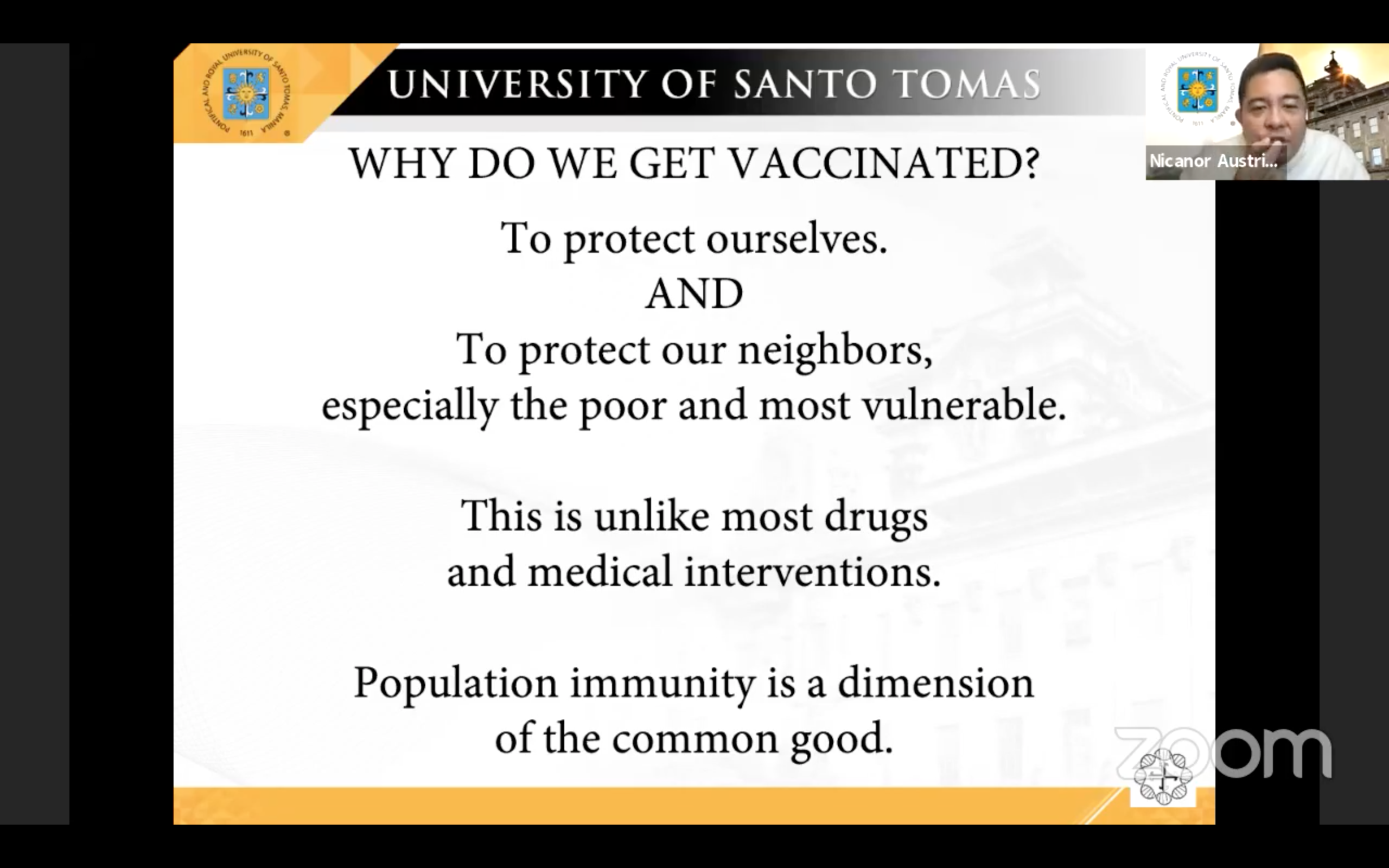
“So, why do we get vaccinated? This is to protect ourselves and to protect our neighbors … But the vaccination is not just for you, it’s also to protect your neighbor and so this is why population immunity is a dimension of the common good,” Austriaco said during the same lecture.
“Theologically, what we say is that we protect the common good because of the Lord’s command to love our neighbor as ourselves and since we want to protect ourselves, we have to protect our neighbor as well,” he added.
This year’s Albertus Magnus Faith and Science Lecture was held via Zoom and had the theme “Solidarity, Equity and the Global Challenge for Universal Access to Vaccination.” C.D.A. Contreras and K.A.L. Escarilla


